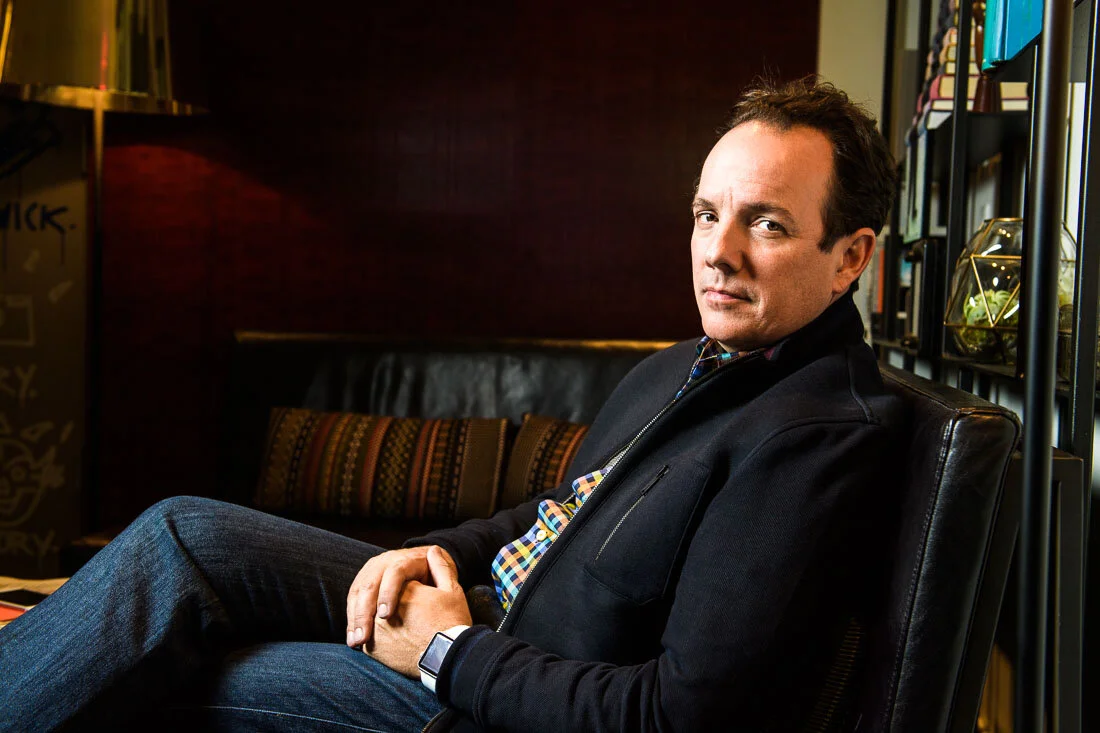John Andrews, CEO of Photofy, a community content creation platform, and Emily talk about all things Marketing Post-COVID in this week's episode. This episode has it all: social media advertising, the future of retail, and amazon to eCommerce. See what these two think the future holds for marketing and which tactics have been most successful in the last several months.
054 - Will You Use One Voice Assistant or Many? Dave Kemp and Katherine Prescott
Listen anywhere:
Topics:
Whether should brands create their own mini voice assistants like Beeb - which kind of brands should consider this? Katherine explains
The newly announced Interoperability Initiative will strive to ensure that voice activated devices will work with multiple digital assistants like Alexa and Siri at the same time.
The two camps regarding what the voice-first future holds:
A) People will mainly interact with just one assistant (see Adam Cheyer, co-founder of Siri Inc.)
B) We will all use multiple voice assistants
C) A middle ground of master and mini assistants - Dave explains how Alexa could launch Beeb (BBC's assistant) or Spot (Spotify's assistant) - and Beeb would be the master of that smaller domain / use case, making a better overall experience
Alexa eventually functioning as an App Store - but for voice
Plus, how devices like Echo Buds and Echo Frames fit in to a world of mini voice assistants
What is the potential of Echo Buds to allow us to access web content we have never thought of as audio enabled?
Echo Frames could be quite powerful to usher us into a world where the input is pure voice but the output/response is multimodal (visual and audio) - Katherine makes a great point here
Get in touch with Dave and Katherine:
Dave Kemp, Business Development Manager at Oaktree Products, Inc.
Katherine Prescott, Founder & Editor at VoiceBrew
053 - Brian Roemmele - The Key to Successful Branding - Voice and Beyond - Pt. 2
Listen to Part 1 - podcast with Brian Roemmele about Alexa hardware and more
Brands have defining points with their customers, as any human relationship does. What makes a brand successful longterm? How does voice play a role?
Subscribe free wherever:
Topics and Timestamps:
02:00 How do we build a relationship in which our customer is the hero? (A la Storybrand framework)
02:53 All products, companies, and brands are a relationship with their consumer.
03:20 Every purchase is an emotional purchase because it is defined by neurological reactions - neuropeptides bombard every cell of our body when you make a purchase
04:00 Every brand has an emotional connection to the people who use their products. Some covet it better than others. This means a narrative is being spun overtly or covertly all the time.
Apple has a powerful brand narrative on a cerebral (higher brain) level
05:45 It took millions of years for apes and chimps to speak and listen: we had to create a new O.S., the neocortex on top of the limbic system in order to communicate
07:15 Neuropeptide release of a transaction or purchase - pleasure in the body, your cells will remember this
08:15 Carl Jung - the twelve archetypes
Archetypes, introduced by Swiss psychiatrist Carl Jung, are models of people, behaviors, or personalities. Jung suggested that archetypes are inborn tendencies that influence behavior.
08:30 Voice has the opportunity unlike any other one (including film) to create a rich deep emotional lifelong connection with the customer. If you do this ethically and build the persona correctly for our brand that resonates with your cohort
09:00 The human agenda is connection
09:45 Brian consults with brands and tell them to understand where the transaction and neuropeptide release occurs
09:55 A voice comes from a person - it’s not a thing - it has a persona (a life, a gender, a background) - we are hardcoded to assign these traits to a voice
10:25 We instantly categorize anything we hear or see anthropomorphically because of flee or flight mechanism
11:05 Your brand has a voice: who is it? Fashion brand example from Brian’s work
11:30 It is impossible to make a persona that caters to everyone: there is no voice of everybody
12:05 You need to assign a Jungian or Myers Briggs archetype to your brand
12:30 Your customer is on their own hero’s journey, along with you (Apple and Patagonia and Tiffany and Starbucks do this or have done this well)
14:00 Why is Alexa female? This could be a smart move by Amazon: female voice = authority on a neurological level! - profoundly important. Google has an androgynous voice - a mistake? Brian would argue yes.
14:15 The voice of authority is and always will be a female. The first voice your hear is your mother. Long before eyesight you have the resolution of identifying your mother - this is a survival mechanism evolution has granted. That is why we are wired for communication and voice.
15:40 We can’t change our hardwiring in our brains - female voice is authoritative, especially one in tune with your mother’s voice (can prove this neurologically)
16:10 Anthropologically and culturally, the wise woman (hence the archetype) was always the leader of the tribe until western culture labeled them witches
17:30 The divine feminine and goddess culture came because women were the voice of authority, which we knew instinctually. Women became the voice of the tribe and holder of wisdom. “Don’t eat that, you will die.” Sounds like mom.
18:40 We are a victim and a success story of our reptilian brain
20:15 If a brand keeps us too reptilian we are probably not going to be longterm fans or customers; jealousy or FOMO pulls at the lizard brain but that is short term thinking. Apple is successful because they get cerebral (higher brain, invoking ideas of fashion)
19:15 There is more to this than throwing out an app, you are building a tapestry to weave between the customer for life. We define our life by our brand relationships to some degree, e.g., “That’s when I owned that car, that’s when I got my first iPhone…”
Thomas the Tank Engine helps children make sense of the world
20:20 It’s not the brand we connect to, it’s the story and its role in our own narrative (e.g. Thomas the Tank Engine helped kids understand the confusion of the world with “The little engine that could.”
21:00 90% of what we do on our computers is trying to make sense of the world, e.g. social media as confirmation that what we did was right
21:15 Brand expression is to attract members of a desired tribe (e.g. why I use Apple)
22:20 When we build voice brands (brands around voice, which are coming) - ask: what does your brand sound like? Who is it? Where did they grow up? This is more than a Hollywood storyboard - and this is why you need experts to help with branding.
CONNECT WITH BRIAN ROEMMELE:
052 - Brian Roemmele - Amazon’s Hardware Announcements: Keys to the Castle - Pt. 1
Echo Buds, Echo Frames, Echo Loop, and more new products take Alexa to new fields: what does it mean? Brian Roemmele is known as the Oracle of Voice for a reason. Over decades he has predicted so many things that came true. The brilliance of these new products like Echo Loop is about getting Amazon into the castle without fighting for spaces that are already occupied, like the wrist or the pocket.
1-click listen anywhere:
Skip to Part 2 with Brian Roemmele: The Key to Successful Branding - Voice and Beyond Alexa
About Our Guest:
Brian Roemmele is the recognized world authority on how voice AI will impact computing and commerce. Over arc of his career, Brian has built and run payments and tech businesses, worked in media, including the promotion of top musicians, and explored a variety of other subjects along the way. He has been published in Forbes, Huffington Post, Newsweek, Slate, Business Insider, Daily Mail, Inc, Gizmodo, Medium, and is an exclusive Quora top writer. He hosts Around the Coin (earliest crypto currency podcast), Breaking Banks Radio and more, discussing everything from Bitcoin to Voice Commerce.
Brian created the Multiplex app and Multiplex Magazine, a way to stay on top of everything important in technology, payments and just about anything else. He has taken the stage at Money 20/20, ETA Transact and many private events as a speaker on the future of Voice Commerce.
Companies don’t patent things just because.
A big theme of this episode is getting out of the weeds of the technical features and instead looking at better ways to get work done. Think big picture. We are looking at the beginnings of new use cases in brand new paradigms.
When you paradigm shift, the canvas is blank, and that’s where we are with voice.
This is Part 1 - tune back in next week to hear more! We cover branding and marketing foundations based on personas and archetypes, which will determine success tomorrow. 1-click subscribe free in your favorite podcast app now so you don’t miss it.
The idea of the app is already gone.
From Brian’s Quora article about Amazon’s Fall 2019 release and preview of products (9/25/2019):
If Echo and Alexa devices from Amazon along with the Skills ecosystem were a stand-alone company in 2019, using typical startup multiples, Echo, Inc would be worth about $500 billion dollars. This is an astounding achievement and there shows no sign that the acceleration is slowing.
Amazon Owns The Far-Field Voice First Market, Now They Are Comping For The Near-Field
Today was a next generation Amazon Alexa-themed event with Echo devices for every possible use case but most specially the near-field. I have surfaced ~32 primary Voice First modalities. Amazon is now in three:
1. Near-field - on the body
2. Mid-field - small environment
3. Far-field - open room
Timestamps by topic:
04:00 Amazon’s patents telegraph the future
04:50 Amazon did not dominate in smartphone, obviously (Fire Phone failed - and at the time in 2014, people overlooked the first generation Amazon Echo)
05:50 Smartphone is an old modality
06:10 iPhone is the iconic smartphone
06:30 What is the strategy to get into the castle? Content and shopping, largest merchant on planet
07:10 “Amazon is a retailer, not a technology company” - this is why Amazon created the voice first experience first
Brian Roemmele - @BrianRoemmele
07:35 Amazon does not pretend to be a tech company, they’re a company that produces technology
07:50 Amazon doesn’t have mindshare yet, and that is key
07:55 What happens with content and mindshare? How does content creation play in?
08:30 Amazon is not going after the smartphone or smart watch (not after the wrist or the pocket
09:10 Products that define new categories must be loved and hated
09:30 “Talk to the hand” back in vernacular with Echo Loop
10:30 Tech companies don’t consider anthropological and sociological impact of products
11:10 We ask “Can we?” too often and don’t ask “Should we?” enough
11:45 Brian’s thesis: Hyper Local
11:55 Echo Loop (a ring) is not always on - it has a button to engage Alexa. It draws you into the Alexa ecosystem without taking away from Apple AirPods - and that is brilliant.
13:20 Future of the voice assistant that you talk to like a significant other
13:30 Done thumb clawing at screen - that is the future
13:50 Echo Frames and Echo Loop are early versions of the ubiquitous voice future
14:20 Near field computing, mid-field, and far-field (open room) - Amazon’s secret weapon over the castle wall was to get in the home (with Echo in 2014) - which became the fastest adopted consumer technology in history
15:10 The tech leap happened organically with consumers from kitchen to living room - Amazon is doing the same strategy again to get people to adopt this in the near field
15:50 People mocked the iPad (menstrual pad?) and look what happened - these products have to be hated or mocked
16:30 iPhone was laughed at because it didn’t have a keyboard. What is past is prologue. We always see the future through the glasses of right now and the past - always view the future through the rearview mirror:
16:40 We defined the new in the words of the old, e.g.: the horseless carriage, flameless candle, talking pictures.
17:50 Most voice first experts have nothing to do with the technology world, which irritates folks in tech
18:45 Computing is not what it was for the last sixty years, and it will not continue to be what is has been the last twenty - think about this for typing and interacting
18:55 Technology gets bigger and bigger until it disappears (e.g. you don’t talk about your carburetor, you just buy a car that works or Jobs saying RAM doesn’t matter, you will only care what the computer does or accomplishes)
21:35 There are no killer applications for voice. “Apps?” That’s 2D. (Check out our interview with Dave Isbitski, Chief Evangelist of Alexa, where we concluded the same thing)
21:55 So what are people really looking for with voice?
22:30 "The idea of the app is already gone.” - Brian
23:40 The intimate relationship that technology can and will spawn is the killer app. We can’t see that world clearly yet
24:50 We’re not battling on the grounds defined by prior technologies
25:10 We’ve only seen 4 of the 175 modalities that voice first works in
25:50 Amazon’s brilliance is great utility to an existing ecosystem (Alexa)
Echo Buds (pre-order Echo Buds for $129.99 <— this link helps support the show!)
25:00 Amazon doesn’t expect Echo Buds to replace Apple AirPods
27:20 Echo Buds isolate noise and incorporate multiple VAs like Google and Siri
27:30 AirPods are a cultural phenomenon about fashion as much as sound- that is why they won’t be easily replaced by Echo Buds
28:05 Brand signaling with AirPods, or whatever product comes next- that is human
28:30 Loop and Frames are wise moves
29:10 AOL move to open AOL Mail to internet mail is similar to Buds move to open to other VAs
29:40 Amazon subsidies for Buds and Amazon Music. Music is a commodity - supplier does not matter.
30:10 When you stream music, that streaming service makes almost nothing (e.g. Apple, Google, Spotify) - loss leader. The strategy is about attention, narrative, communication with the customer.
30:50 See: Prime. Brilliant. Long term relationship.
OUR SPONSOR
With Trinity Audio, publishers and bloggers can turn their readers into listeners by turning their written content into lifelike speech. All it takes is a short snippet of code to audio-fy your website. Get started for free at trinityaudio.ai.
Connect with Brian Roemmele:
039 - Katherine Prescott: Alexa Privacy, Echo Show 5
Katherine Prescott is the Founder and Editor of VoiceBrew, a digital media company dedicated to helping people get the most out of Alexa. We discussed privacy on Amazon Alexa as well as the future of #voicefirst advertising. Which tech company's business model has true alignment with the end user, examining Amazon, Apple, Google, and Facebook.
Katherine Prescott is the Founder & Editor of VoiceBrew, a top resource for Alexa tips and best uses
Topics and timestamps:
Privacy - Amazon Alexa - is she recording?
Amazon Echo Show 5 announcement - new features, especially for greater privacy and user data control
When is Alexa recording vs listening?
How do I control my privacy settings on Alexa?
3.10 This privacy dialogue is healthy - it improves voice assistants for consumers
Echo Show 5 has a new camera shutter and the ability to say “Alexa, delete everything I said today”
4.20 Alexa app is not the focus
5.00 Discoverability is the ultimate challenge
5.05 It’s called the 5 but this refers to the 5.5 inch screen - is same as third gen echo
5.10 Why the Echo Show 5 is such a big deal - compelling land grab for affordable smart display space
6.10 Like the shift from radio to TV, third party Alexa skills will improve dramatically because of multi-modal
10.04 Will smart display pave the way for advertising? Banner even? Less intrusive than voice? Alexa diplsay ads?
10.50 Emily: sponsorship and brand preference will be paid for - that will be the advertising, unlike previous digital like banner ads or PPC
11.30 Katherine: Tech giants are shifting toward privacy as a feature
13.15 Business model and alignment - Amazon, Apple, Google, Facebook. Great point from Katherine.
14.02 Google's pitch: we provide free services and collect your data.
14.27 Think of privacy in broader context - we are in the early innings of voice
See this post on Instagram and follow @beetlemoment for #voicefirst news
Sources:
Echo Show 5: https://www.techradar.com/news/amazon-echo-show-5-everything-you-need-to-know
"Buried in this morning’s Echo Show 5 announcement are a couple of new security features worth highlighting. In addition to the inclusion of a built-in camera shutter on the new smart display are a pair of Echo commands that let users delete voice recordings with an Alexa command." -https://techcrunch.com/2019/05/29/amazon-adds-alexa-delete-what-i-said-today-command/
Enjoy this episode about #voicefirst marketing and technology? Please leave us a review! 1) Click “Listen in Apple Podcasts”, 2) Click “Open in iTunes:, 3) Click “Ratings and reviews”. Thanks!














